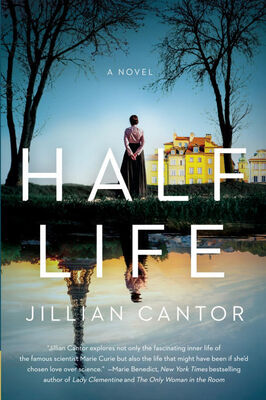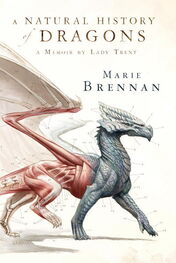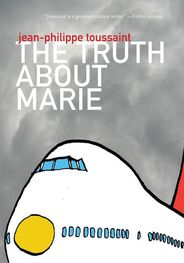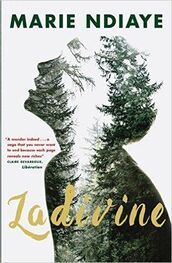But I am very weak, very tired. Maybe I do not tell her this at all?
Then, one morning, I awake in a sanatorium in Sancellemoz, and Ève sits by my bedside, crying, and I know. She understands now.
I AM SIXTY-SIX YEARS OLD AND I CONVALESCE, MY BONES NO longer able to carry the weight of me out of this bed. Nearly all day I sleep, but still I dream. Pierre comes back to me most of all, and the pain of losing him catches again in my chest, and I stop breathing for a moment. Then I awaken, and I start again. I am not dead just yet.
Ève does not leave me. She calls my name out in the darkness.
Maman, is there anything you need?
I can see the shape of her when I open my eyes again, more a shadow than my youngest daughter. The girl with the radium eyes. I wish I’d learned to understand her piano music more when I’d had the chance. I wish I’d held her closer to me, loved her better, enjoyed her talent. Maybe there is more than science for you , I want to tell her now. Play all the concert halls you dream of, find a man who is your equal and love each other. But the words don’t quite come out.
Of course, I will play you a song , she says.
So maybe that is what I have asked of her instead. Because then, there it is, the tinkling of piano keys, like raindrops on the metal roof of our laboratory the last morning I ever saw Pierre.
MAMAN. ÈVE’S VOICE AGAIN.
Hours have passed, or maybe just minutes? Or has it been days? My beautiful daughter, she is a shadow, hovering again. No, there are two shadows now. I wish for the second one to be Irène, my eldest daughter, my heart, my companion, my confidante. But it is not she. The shadow is much too large, much taller than Ève.
Someone came to see you , Ève says. He says you were friends long ago, back in Poland.
He?
The shape becomes a memory, and my sense of smell has not left me yet. I inhale: peppermint and pipe smoke. And then the icy river in Szczuki; the pine cones and fir trees lining the road where we last walked together.
Why is he here? He has lived his entire life without me, married Leokadia and became a well-respected mathematician in Poland, just as his mother dreamed he would.
Marya , he says. He must’ve sat down in a chair by my bed, because when I open my eyes again, his shadow is smaller, closer to me. I feel the weight of a hand on mine, and I know. I just know. It is his hand, and it still feels the same after all these years, all this time. I am twenty-two again, skating on the river, dizzy and laughing. Which is ridiculous, scientifically impossible. My bones are nearly dust. I cannot move out of this bed.
Why are you here? I think I say. Or maybe I don’t say anything at all.
The biggest mistake of my life , Kazimierz says, was ever letting you go . I should’ve married you.
I close my eyes, and I imagine it: the different choices I might have made, the ways I could have saved my family. I might’ve lived so much differently: an anonymous life, a happier life, a Polish life. A life without science.
I OPEN MY EYES AGAIN, BUT EVERYTHING IS STILL BLACK.
“Maman.” Irène’s voice is very far away, like it is coming for me through a deep, dark tunnel. I feel her hand on my hand, Ève’s hand on my other.
Kazimierz is gone, or maybe he was never here at all. Pierre is so close, I can almost feel his hand on my cheek, almost hear his voice calling out for me: Mon amour , slow down, you are pedaling much too fast .
I love our life together. How did I ever get so lucky?
But there is no such thing as luck. Only the choices we make. Only the work we undertake. Only the legacy we leave behind.
“My life might have been so much different,” I say.
“Sssh, Maman,” Irène says, not understanding. “I’m here now. Don’t try and talk. Just rest. The lab is safe, I promise you. Fred and I will take good care of it.”
When I close my eyes again, the blackness turns brighter, yellow and gold and ethereal, just the way the radium looked that night in our lab so many years earlier, as if Pierre had reached up into the sky, grabbed starlight, and put it in glass for me.
“Oh, Pierre,” I say. “Look what you have done!”
He climbs up onto our worktable to sit within the glow. His face illuminates green and gold. “No, look what you have done, mon amour . All these years, all your brilliant work. Look what you will leave behind.”
Radium has a half-life of 1,600 years, so it will exist on and on and on, long after I take my last breath.
Pierre disappears, and Irène and Ève have faded into the darkness. My radium glows before me now, bright and beautiful, powerful and healing. In the end, it is everything, the only thing.
Look what I have done.
Marya Zorawska was not a real person, but she might have been.
The real Marie Curie was born Marya Sklodowska in Poland in 1867, the youngest of five children. She worked as a governess for the Zorawski family in Szczuki in the late 1880s, trying to earn enough money to move to Paris to study at the Sorbonne and also to help her sister Bronia get through medical school there. (Bronia, in turn, would help support Marya when she eventually moved to Paris.) But while working as a governess, Marya fell in love with the family’s oldest son, Kazimierz Zorawski. They got engaged, but Kazimierz broke the engagement off due to the disapproval of his mother, who said Marya was just a poor governess who would never amount to anything. Shortly after, Marya moved to Paris to live with Bronia, changed her name to the more French Marie , and began her studies at the Sorbonne.
Kazimierz Zorawski eventually did marry Leokadia Jewniewicz, a budding concert pianist and daughter of a prominent mathematician, Hipolit. They had three children together, and Kazimierz became a prominent mathematician himself, teaching at Jagiellonian University in Krakow and the University of Warsaw, after World War I. (Separately, his father in law, Hipolit, was working on the theory of elasticity before his death, and his work was published posthumously in 1910.)
I don’t know if the real Marie ever had any lingering regret over what happened with Kazimierz, and from everything I read, I believe Pierre Curie was her greatest love, her scientific equal and partner in every way. But Kazimierz reportedly spent the last years of his life sitting outside the Radium Institute in Warsaw, staring at the statue of Marie that had been erected out front after her death in 1934. It was reading that tidbit that first gave me the idea for this story.
The Marya chapters in this book are all completely fictional, a what-if, my own imagining of how Marya Sklodowska might have lived her life differently and become someone else, if she’d made one different choice. But the Marie chapters are all based on the real Marie Curie’s life. The tragic deaths and ups and downs and scandals of her personal life as well as the highs and lows of her scientific career are all based on historical facts. I have taken a few fictional liberties for my story. Namely, I don’t know whether Marie and Kazimierz ever saw each other again after 1891. Or what they might have said to each other if they did. And in that vein, the scene in the novel where he tries to stop her from getting on the train to Paris is completely fictional. As is the one where they meet again in a café in Warsaw in the summer of 1906.
I have also followed historical fact for the people surrounding Marie in her storyline: Bronia and Hela’s lives, Pierre, Irène and Ève, and even Jean Perrin and Jeanne and Paul Langevin (who did reconcile in 1914, though later Paul would go on to have another affair). The Curies and the Langevins did vacation together in the summer of 1908, and there was also an incident where Jeanne struck Paul over the head, though to my knowledge it did not happen during their summer vacation and I took some liberties with that timing. The details of the length and breadth of Marie and Paul’s affair are somewhat hazy and unknown now, though they did reportedly have a pied-à-terre in Paris by 1910, and the details about their letters, Jeanne’s threats and blackmail, and the fallout in the press are all reportedly true. Marie did use electrolysis to turn radium chloride into its metallic state around the time she was with Paul, but I fictionalized that it was Paul who gave her the idea.
Читать дальше






